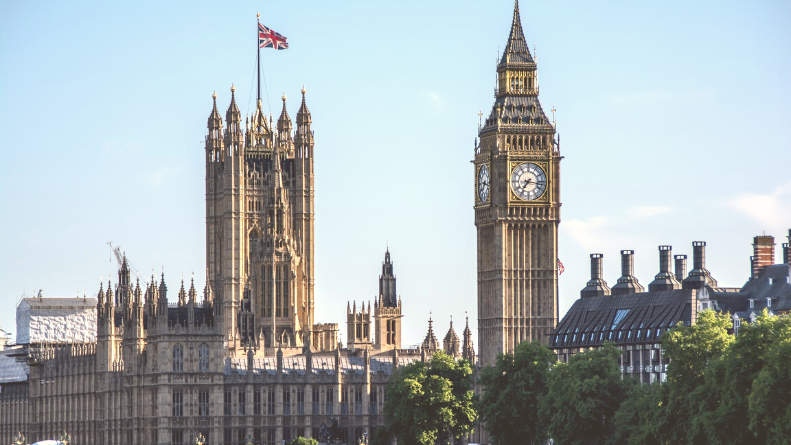The Government Publishes ‘A Fairer Private Rented Sector’
A government white paper aimed at improving the rights and conditions of millions of tenants in the private sector, titled ‘a fairer private rented sector’ has now been published. The white paper on a fairer private rented sector, which was published on June 16, 2022, will aim to ensure that millions of families have safe, well-maintained housing.
Key aspects of the white paper
- The new strategy for renter reform will stop the unfairness of inadequate and unfit homes and help safeguard renters from the growing expense of living.
- Section 21 “no-fault” evictions will be prohibited, and the Decent Homes Standard (social housing) will be expanded to include the private rental sector.
- Rent review provisions will be abolished, renters will have more authority to dispute unfair practises and excessive rent hikes; and they will be able to get their rent for substandard housing refunded.
- Landlords and real estate brokers will no longer be able to prohibit families with children or those on welfare from renting their properties.
- It will be simpler for renters to share their homes with their pets.
Landlords and their 4.4 million private renters will benefit from a generational shift in how they are treated in the wake of the white paper. It offers new assistance to those feeling the pinch of rising costs, including protections for the most vulnerable residents and steps to combat unjust and arbitrarily high rents. This is a part of a broader reform plan aimed at bettering people’s lives and levelling the playing field for all citizens, including tenants and homeowners alike.
Of course, the majority of private residential landlords already comply with the highest standards and offer their tenants an excellent home to live in. For those that don’t, they will be under greater scrutiny.
Measures released in the report
- It encourages low-income families by prohibiting landlords from denying tenants with children or welfare recipients’ access to their properties.
- The prohibition of unfair rent review provisions and greater controls on tribunals with hiking rents. With this change, renters will be able to get their money back for bad housing for the first time.
- Enabling tenants to keep their beloved pets in their homes by granting them the right to request that their landlord consider allowing them to keep a pet, a request that the landlord cannot refuse to accept on unreasonable grounds.
- A single periodic tenancy system should be implemented for all renters, allowing them to move out of substandard property without being held responsible for rent or to relocate more readily if their circumstances change. Unless the landlord has a valid basis, established in law, to end the tenancy, it cannot be terminated.
- Double the amount of time renters have to contest rent hikes if they are deemed unfair, along with increased powers to mount a challenge.
- Encouraging councils to take on the worst offenders by giving them more authority and raising the punishments for significant offences through enforcement pilots.
With these reforms, an estimated 2.3 million private landlords will receive more clarity and assistance thanks to the measures listed below.
- A new Private Renters’ Ombudsman will be established in order to expedite the resolution of conflicts between private renters and landlords without the need for recourse to court proceedings.
- Facilitating responsible landlords so that they are able to evict anti-social tenants and sell their properties in a timely manner when they need to.
- Offering a new property platform to help landlords understand their responsibilities and give councils and renters the tools they need to fight against shady operators.
With these changes, tenants won’t have to move from one privately leased house to another as frequently, saving significant sums in moving expenses.
This new step being taken by the government builds on years of action already taken in the sector, including the percentage of people living in substandard private rental housing dropping from 37% to 21% in the last decade. They have also put a limit on security deposits, banned rental fees for leases signed after June 1, 2019, and put in place COVID pandemic emergency measures to stop people from being kicked out of their homes by bailiffs.

A Renters’ Reform Bill, which was announced in the Queen’s Speech, is expected to be tabled this Parliamentary session. It is anticipated that a better deal for renters and a more stable and high-quality private rental market will be achieved by implementing this policy. This will not only benefit renters in the private sector but also help improve the image of landlords that comply with high standards.
Levelling Up and Housing Secretary Michael Gove said:
“For too long many private renters have been at the mercy of unscrupulous landlords who fail to repair homes and let families live in damp, unsafe, and cold properties, with the threat of unfair ‘no fault’ evictions orders hanging over them.
Our New Deal for renters will help to end this injustice by improving the rights and conditions for millions of renters as we level up across the country and deliver on the people’s priorities.”
More than half a million privately leased homes – or 12 percent of households – represent an urgent risk to renters’ health and safety, meaning that about 1.6 million people are living in dangerously low-quality housing, which is contributing to the increase in expenses of our health care system, according to the government.
The government has said that their levelling up “missions” are being delivered, and today’s action is the latest step in accomplishing this goal, which aims to half the number of low-quality rental dwellings by 2030 in both private and social tenures.
According to the Social Housing Regulation Bill, which was tabled by the government only in recent weeks, failed social housing landlords may be subject to limitless penalties and inspections like those conducted by Ofsted.
As part of an overhaul of the relationship between landlords and tenants, tenants will be able to compel information and rate their landlords. The Bill will be a critical component of the government’s ambition to level up throughout the country and “deliver on the people’s priorities” when it is paired with the renter reform white paper.
A fairer private rented sector would extend the Decent Dwellings Standard to private renters and households for the first time, levelling prospects for the majority of tenants who presently live in inadequate homes. Landlords are required to make sure that their properties are safe and free of major health and safety risks for their tenants.
Tenants will be prohibited from being evicted under Section 21 of the Housing Act, which allows landlords to do so without providing a reason. More than a quarter of private tenants who relocated in 2019 and 2020 didn’t do so voluntarily, and 8 percent were asked by their landlord to leave.
ARE YOU READY TO START INVESTING?
Subscribe to our mailing list now for exclusive deals, investment guides and the latest information from the property market.






